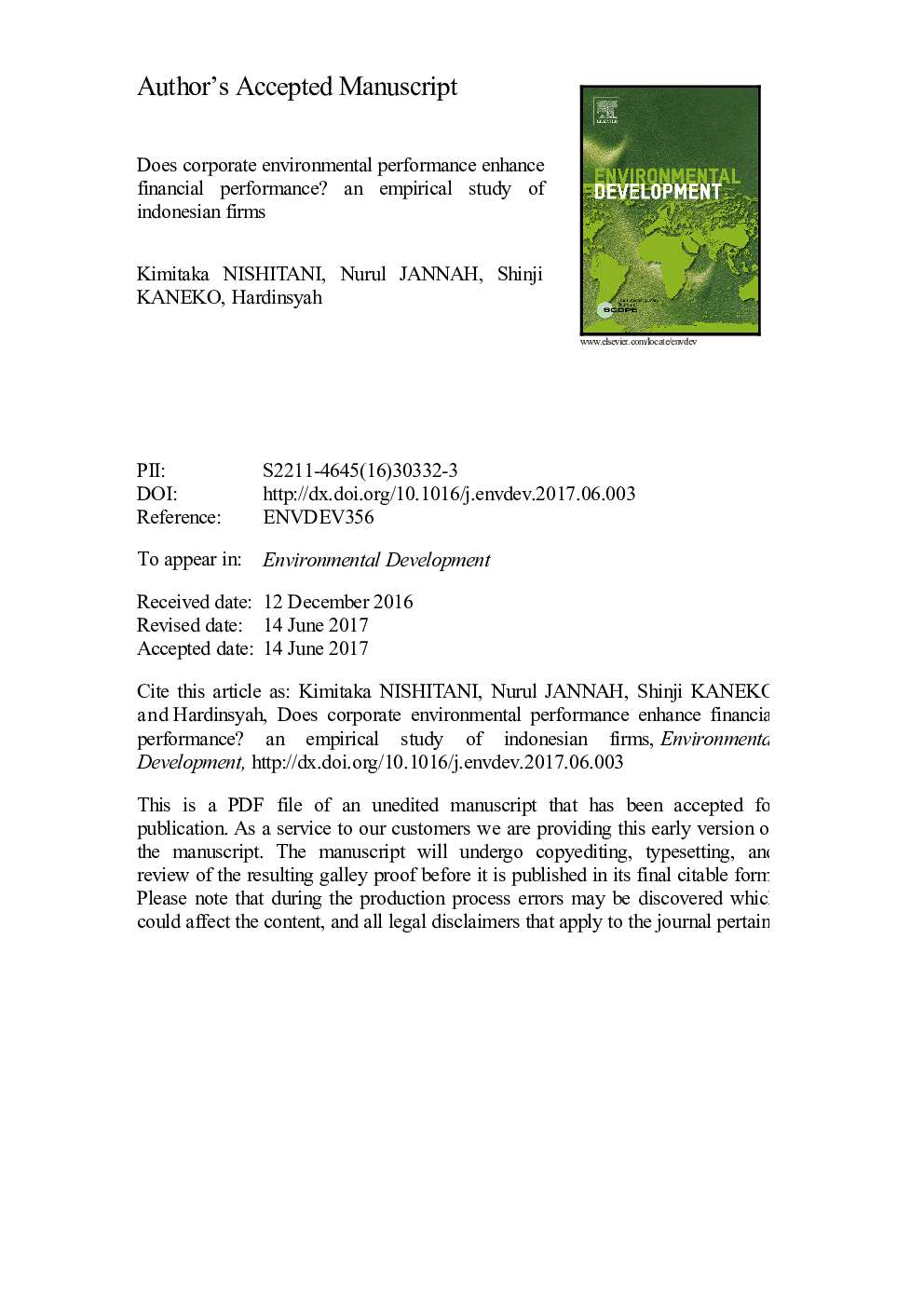| Article ID | Journal | Published Year | Pages | File Type |
|---|---|---|---|---|
| 5744110 | Environmental Development | 2017 | 27 Pages |
Abstract
This paper, using data derived from a questionnaire survey of Indonesian firms, analyzes whether a firm's environmental performance enhances its financial performance and why this happens. Due to the fact that the breakeven point of improving environmental performance will decrease in theory by implementing environmental management voluntarily rather than mandatorily, the relationship between environmental performance and financial performance is assumed to depend on the firm's voluntary or mandatory stance on environmental management. The main findings of the regression analysis are as follows. First, firms that implement environmental management more aggressively are more likely to reduce greenhouse gas (GHG) and pollution emissions more. However, this does not mean that firms with a voluntary stance on environmental management are more likely to reduce these emissions by implementing environmental management than those with a mandatory stance. Second, firms that reduce GHG emissions to a greater extent are more likely to enhance profit further, whereas this is not the case for firms that reduce pollution emissions more. Third, firms that reduce GHG emissions more are more likely to improve productivity and are not more likely to increase sales. Accordingly, firms can enhance profit by reducing GHG emissions through reducing production costs and not by increasing sales. These results imply that although Indonesian firms enhance their financial performance through better environmental performance to some extent, the effect on financial performance is not large. This is because they do not successfully achieve environmental innovation and the breakeven point of improving environmental performance does not decrease sufficiently.
Related Topics
Life Sciences
Environmental Science
Ecology
Authors
Kimitaka Nishitani, Nurul Jannah, Shinji Kaneko, Hardinsyah Hardinsyah,
